When Tilda Swinton first got the script for Problemista, she wasn’t sure what to make of the character Elizabeth, who the film’s writer-director-star Julio Torres was hoping she would play. Set in New York City, Problemista tells the story of Alejandro, a Salvadorian immigrant who is desperately navigating the brutal bureaucracy of the U.S. immigration system so he can pursue his dream of becoming a toy designer at Hasbro.
When the film opens, Alejandro is working at a cryogenic facility where dying people pay large sums of money to be frozen in the hope of being reanimated in the future. Alejandro is in charge of looking after the freezer containing Bobby (played by RZA), a painter and the husband of Elizabeth who is a walking id of the abusive art-world eccentric and nightmare boss. When Alejandro is fired from the facility, he is desperate to find another employer to sponsor his work visa. Elizabeth hires him to organize her FileMaker Pro database of Bobby’s work. “It was really impressive for a first screenplay,” Swinton says of the script. “Completely its own thing, completely its own world.”
At first, Swinton read the part of Elizabeth as an American, something that she, even after decades in the business, has a hard time wrapping her head around. “I do need American lives explained to me, because I really feel quite alien, and the vernacular of American lives is not familiar to me. I remember when Tony Gilroy asked me to play a corporate lawyer in Michael Clayton, I needed to have a tutorial on what that woman might be, cause at that point I’d never met a corporate lawyer. So I felt a little intimidated by the idea of this American Elizabeth.”
Torres — who’d been working on the script for several years, while also writing for Saturday Night Live, doing stand-up specials, and creating and starring in the HBO show Los Espookys — was so intent on landing the Oscar winner that he told her she could adapt the part to herself. “When Julio said, ‘She doesn’t have to be American,’ I had a complete H-bomb moment, because then the whole film and the relationship between them made real sense to me. Because she was an [immigrant] too.”
That sense of alienation and the hardships of immigration is just one of the many threads that Torres spun together to create this film, which premiered at SXSW in 2023 and was finally — after delays due to the Hollywood strikes last summer — released by A24 this month. Narrated by Isabella Rossellini, Problemista is semi-autobiographical; Torres himself graduated from the New School in 2011 and had to take odd jobs to support himself financially and work toward a visa. In Torres’ hands, the modern-day gig economy American dream is a darkly comedic fairy tale.
The jokes in Probemista tend to skew absurdist — Alejandro’s toy creations include a hypochondriac Cabbage Patch doll with a cellphone, and a Slinky that doesn’t slink; Bobby only paints pictures of eggs; immigration is illustrated as an endless hall of rapidly expiring hourglasses, each one representing an individual’s time that is about to run out; and flashbacks to Alejandro’s childhood, in which he built a magical backyard fort that fostered his sense of wonder, exist somewhere between reality (as seen in his frequent phone calls to his mom back in El Salvador) and a child’s imagination. Yet overall, the film manages to capture the unmoored, uncertain feeling of being a broke outcast trying to eke by a few more days, eager to make it to happiness.
“It started from very different angles. The character that became Elizabeth was one of the first seeds, and her way of speaking,” he says. “I have found [it] interesting that people who deal with aesthetics, who are in the commerce of the beautiful — whether it is the art world or fashion — they are very upset all the time. That was quite fascinating to me, that juxtaposition of dedicating your life to something that’s supposed to be joyful. And the beautiful is so stressful.”
One thing that the characters in Problemista have in common is that they keep putting their happiness on hold as they wait for a better future. This comes in the literal sense with Bobby, who was diagnosed with terminal cancer in the 1996, just as he wrapped up a series of 13 egg paintings, and decided to freeze himself until there was a cure. Elizabeth, while waiting for her husband, obsesses over finding all of the paintings and logging their wherabouts in a database, convinced this will bring her happiness, order, and closure.
“In life, we keep putting life on hold, and we keep going from one promise, to another promise, to another promise, without ever allowing ourselves to live life,” Torres says. Even the eggs that Bobby paints are part of this. “He’s obsessed with the idea that he doesn’t want to paint what is happening right now, he wants to paint what could happen,” Torres explains. “An egg is but a promise.”
Alejandro, perhaps subconsciously, tries to break free from that impulse and live in the moment. In one scene, he takes a job at the house of a man (James Seol) with a cleaning kink, who watches, masturbates, and eventually starts to go down on the protagonist as he cleans the windows. When Alejandro leaves, rather than slink out, he gives the man a kiss goodbye. “I don’t think that’s a dark moment,” Torres tells me. “And I don’t think he accidentally becomes a sex worker, either. I think that he had so much of him on hold for the pursuit of this purpose of getting this work visa, he had put so much of his humanity on hold and so much of his life beyond this obsessive need for this work visa on hold, that the only way he could tap into that part of himself was disguising it as being part of the greater agenda.”
Torres finds creative, surreal ways to let Alejandro’s wild imagination take shape on screen. Craigslist (Larry Owen) is a poetic entity wrapped in purple hues and surrounded by junk as he whispers the details of low-paying and shady job opportunities. He meets a Bank of America teller (River L. Ramirez) in a netherworld who explains to him how overdraft fees are really for his protection. When Elizabeth is angry, he imagines a dungeon where he is dressed like a knight and quite literally battling her as a hydra.
“There were outlines and maybe three pages of a very bare bones, truthful, slice-of-life kind of movie, and that just didn’t go anywhere,” Torres says. “It wasn’t until I realized, ‘Oh, wait, I can make this in the way I want to, in the only way that I can,’ that we would just sort of flow it out.”
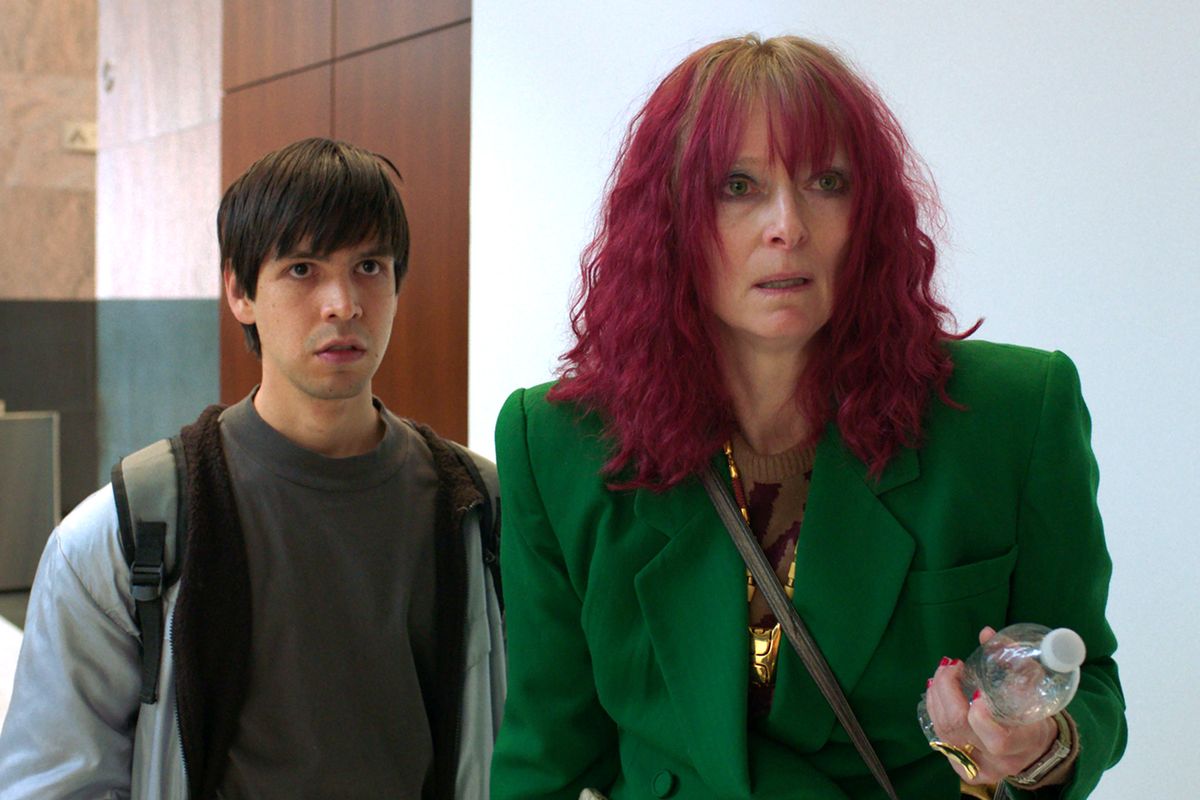








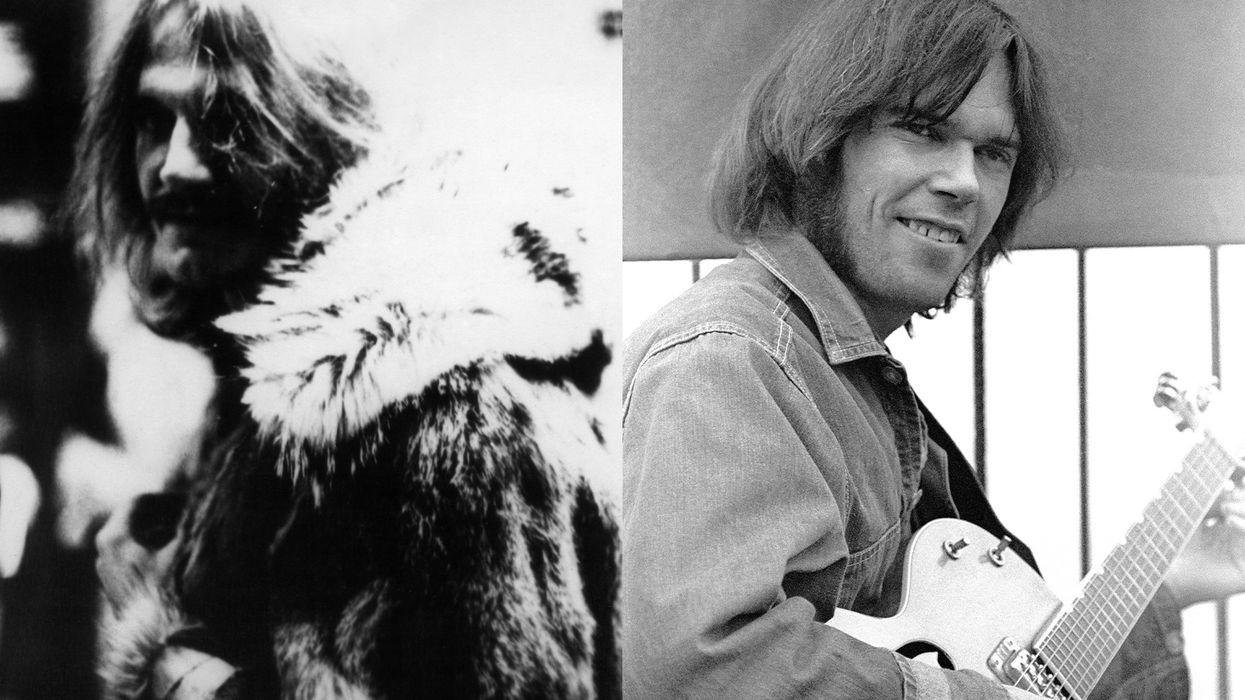
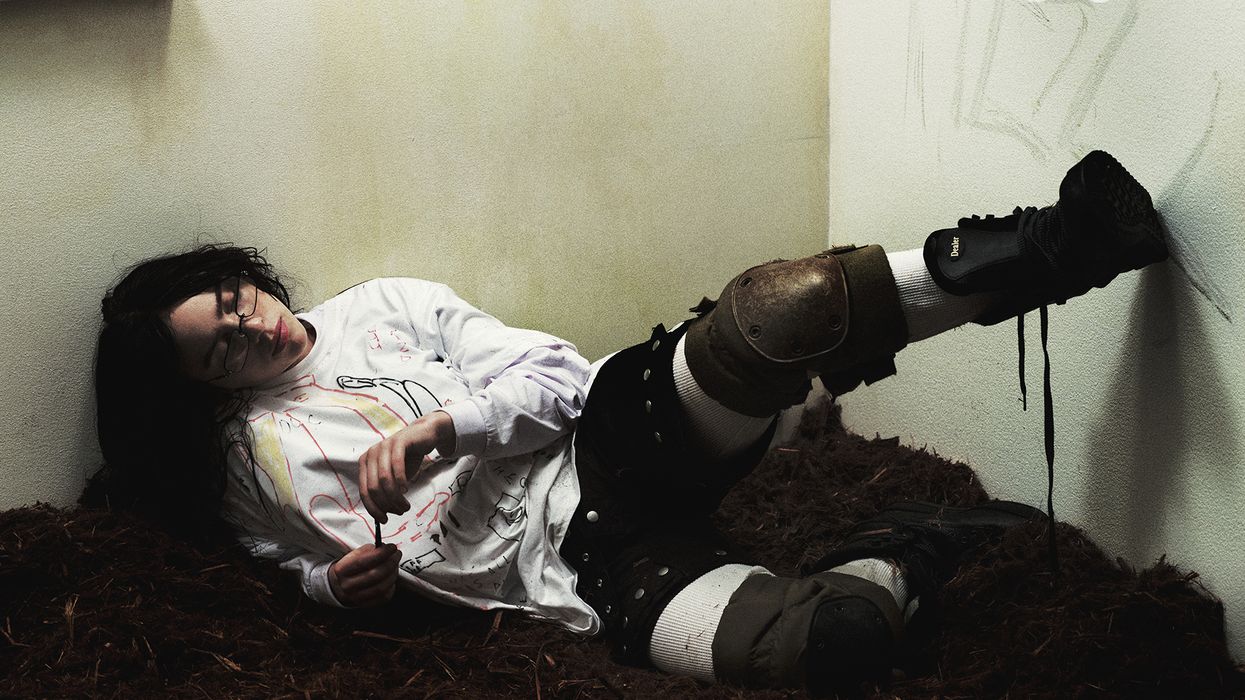



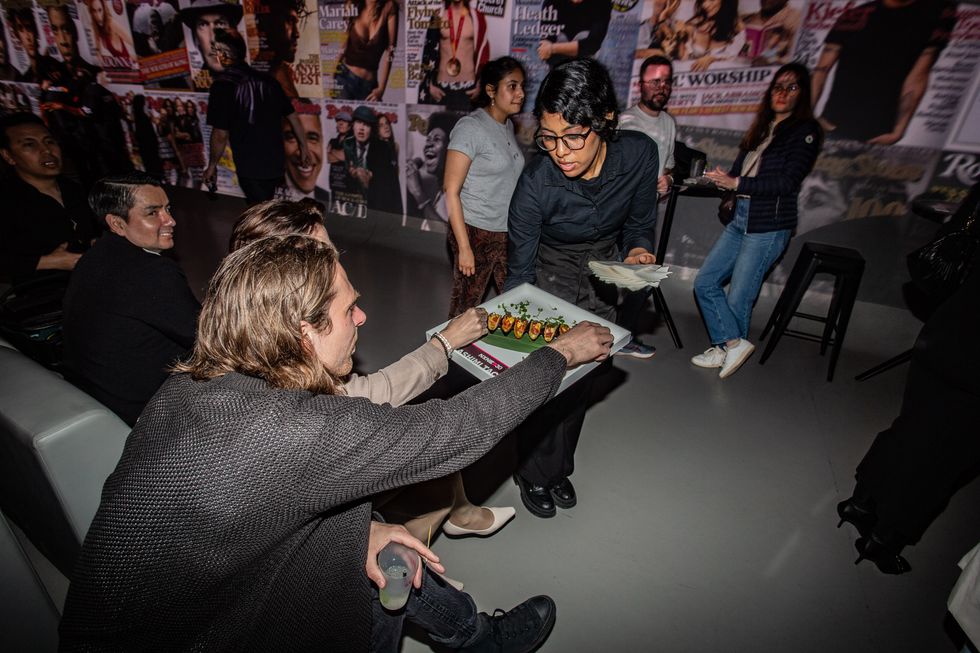 Catering Presented By The Food DudesPhoto by Snapdrg0n
Catering Presented By The Food DudesPhoto by Snapdrg0n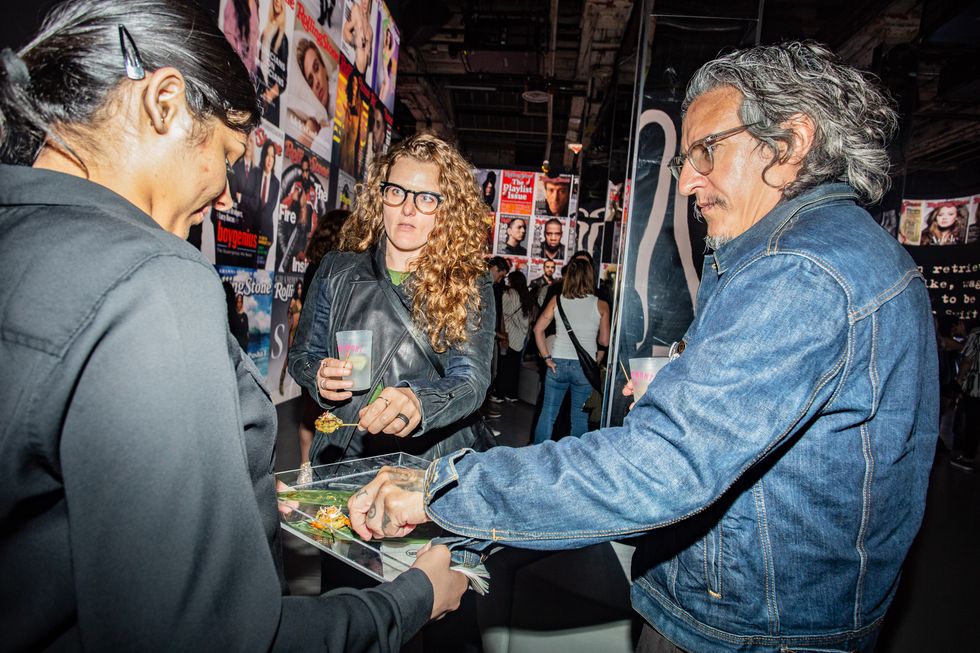 Catering Presented By The Food DudesPhoto by Snapdrg0n
Catering Presented By The Food DudesPhoto by Snapdrg0n Catering Presented By The Food DudesPhoto by Snapdrg0n
Catering Presented By The Food DudesPhoto by Snapdrg0n
 Photographer: Raphaëlle Sohier / Executive production: Elizabeth Crisante & Amanda Dorenberg / Design: Alex Filipas / Post-production: Bryan Egan/ Headpiece: Tristan Réhel
Photographer: Raphaëlle Sohier / Executive production: Elizabeth Crisante & Amanda Dorenberg / Design: Alex Filipas / Post-production: Bryan Egan/ Headpiece: Tristan Réhel Photo: Raphaëlle Sohier
Photo: Raphaëlle Sohier Photo: Raphaëlle Sohier/ Photo production: Bryan Egan/ Blazer:
Photo: Raphaëlle Sohier/ Photo production: Bryan Egan/ Blazer:  Photo: Raphaëlle Sohier/ Blazer: Vivienne Westwood/ Skirt :
Photo: Raphaëlle Sohier/ Blazer: Vivienne Westwood/ Skirt : 

